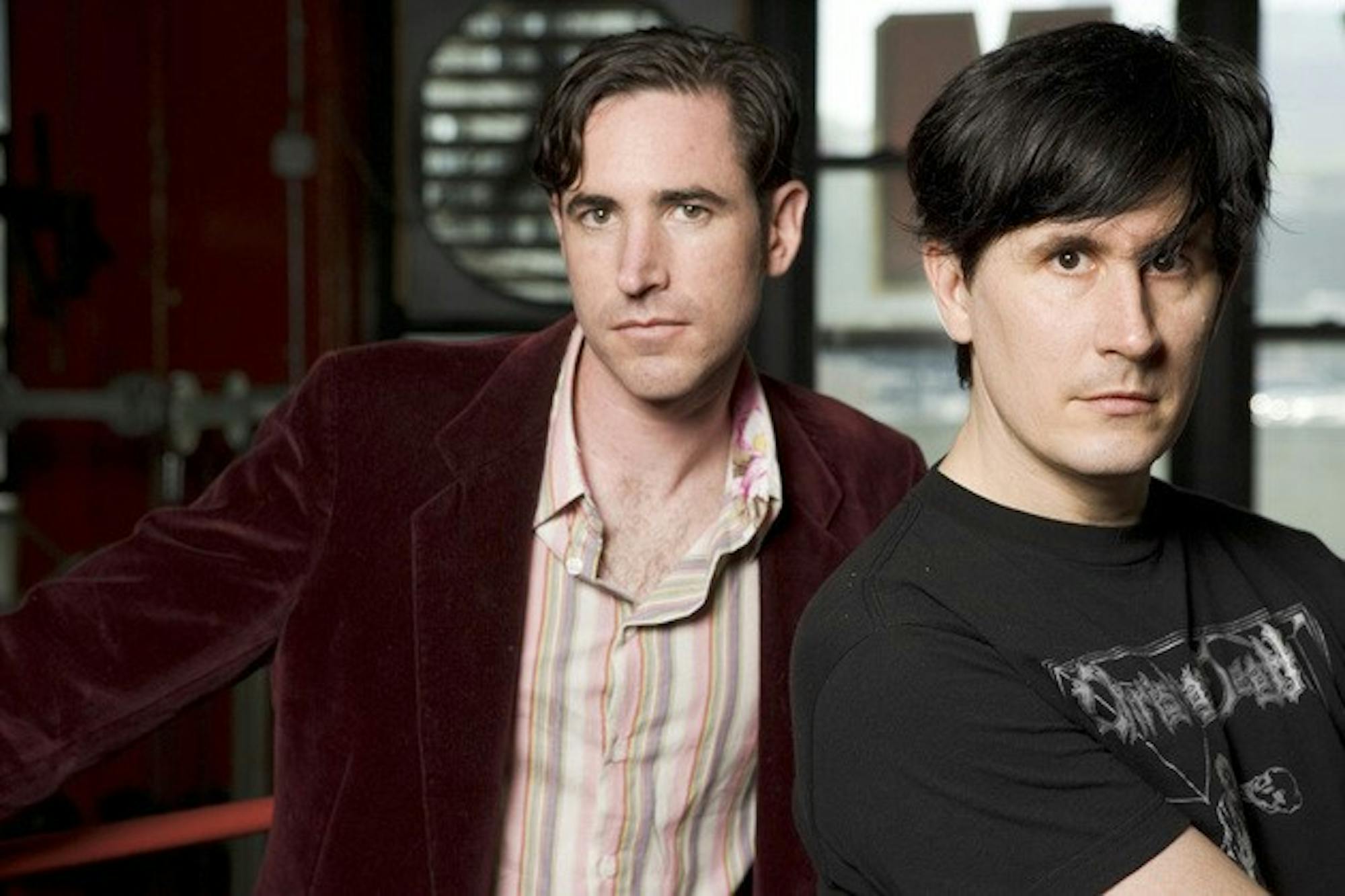The band is consistently denied wide popularity, however, due to inaccessible material, along with the sometimes-abrasive voice of lead singer and songwriter John Darnielle.
Often stretching his voice beyond its capabilities, Darnielle is both the creative force behind the Mountain Goats and their limiting factor. Nowhere is this more evident than on "Heretic Pride," the band's latest album, out last Tuesday on indie label 4AD.
The Mountain Goats follow a proven indie rock formula, perfected over the course of a decade and a half of recording. Their guitars and drums are clean but not polished. Folk tendencies are hidden with creative lyrics and unfamiliar themes.
This is music for dorks, calling to mind the Decemberists and other lit-rock types.
With songs comparing a heart to an autoclave -- a pressurized boiler for sterilization -- and describing H.P. Lovecraft's formatively scarring time in Brooklyn, "Heretic Pride" is not for the faint of mind. It's a refreshingly intellectual take on popular music in a world of Soulja Boy and Lil' Mama.
Let's not confuse intelligence with musical merit, however, as the album is certainly not without its pitfalls. Despite deep thesis statements and literary stories, the album often falters and never quite seems to hit its stride.
Perhaps due to its dense material, the record is not readily accessible. "Heretic Pride" definitely grew on me the more it spun, but two major flaws stick out like sore thumbs from the get-go: Darnielle's aforementioned voice and overall lack of variety across the album's 13 tracks.
The Mountain Goats realize that their strengths lie in syncopated rhythms that highlight language used in their lyrics, best seen in album highlights "San Bernadino" and "Sax Rohmer #1." With these two infectious tracks at the opening of "Heretic Pride," however, it is tough to get the melodies out of mind. As the album progresses, I find myself attaching those same rhythmic patterns to other songs, creating a mush of indistinguishable tracks.
It doesn't help that the chorus tags of two of the album's best songs, "San Bernadino" and "Lovecraft in Brooklyn," are syllabically similar. Yes, syllabically. Later in the album, in the song "New Zion," Darnielle talks about "old familiar tunes" and "old things made new."
He could be easily describing "Heretic Pride" as an album. The tracks are good, no doubt, but also seem like mere recapitulations of ideas and melodies we've heard before from the Mountain Goats. In large part, these songs are easily forgotten.
Realizing this, perhaps, Darnielle seems to alternate between faster and slower tracks, attempting to stop the blending of subsequent songs. While somewhat effective, it also prevents the album from gathering any musical momentum.
Thematically, after making strides toward popular success with the highly personal "Sunset Tree" (2005) and "Get Lonely" (2006) Darnielle has scaled back the defining characteristic of those albums to more general stories on "Heretic Pride."
While the album is still entertaining, it is more difficult to establish a personal connection with these disjointed narratives than the Goat's previous efforts.
And then there's that pesky issue of vocals, which can't be ignored when discussing the Mountain Goats. Although Darnielle occasionally makes his distinctively tinny voice work well within the context of the tracks, more often than not it detracts from songs, particularly slower ballads like the painful "So Desperate."
Despite sharing vocal duties from time to time with female vocalist Annie Clark as well as the Bright Mountain Choir, Darnielle shoulders most of the burden and thus most of the blame. His voice certainly becomes more tolerable over time, but will continue to limit the commercial success of the Mountain Goats. Tolerable is not a musical selling point.
Whether "Heretic Pride" is successful as an album is a highly relative question. Dedicated longtime fans will no doubt cherish the album as freshly intelligent material from an old favorite who has flown under the radar.
A few listeners, exposed to the Mountain Goats for the first time with "Heretic Pride," will likely fall in love with the lyrical staccato and unique timbre of John Darnielle, savoring tracks like "Autoclave" and "Michael Myers Resplendent." Still more will latch onto "San Bernadino" and "Lovecraft in Brooklyn" as highlights from a largely disappointing album that ignores the Goats' previous strides.
And finally, many will look at the album as an easily dismissible release from a prolific artist who will never make the jump from good to great.
Indeed, "Heretic Pride" is all of these things, brilliant at its best, misguided at its worst, a puzzling combination of catchy and inaccessible.




![HONEYJOON_[Ines Gowland]_4.PNG](https://snworksceo.imgix.net/drt/7af2efc8-1bd1-4001-b754-e2718ce663b8.sized-1000x1000.PNG?w=1500&ar=16%3A9&fit=crop&crop=faces&facepad=3&auto=format)